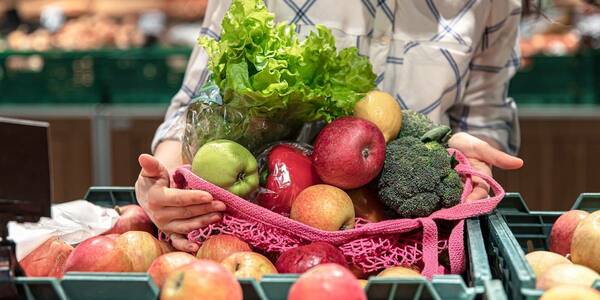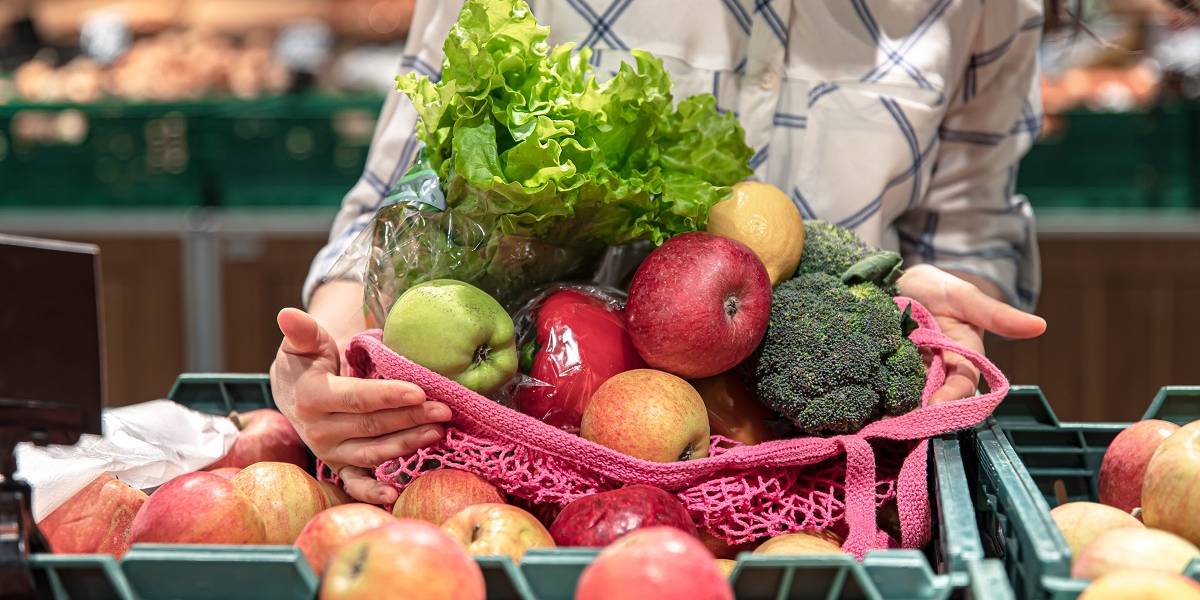How municipalities of the Dnipropetrovsk region address food security
For the municipalities of the Dnipropetrovsk region, the issue of food security is critical. After all, in addition to providing for their own populations, the Armed Forces of Ukraine and IDPs, they also support neighbouring municipalities that are under temporary occupation or suffer from active hostilities on their territory. The participants of the info session “Ensuring Food Security Measures in Municipalities” explained how the municipalities of the region prepare for winter and talked about the programmes and measures being implemented.
“The Dnipropetrovsk region remains a strong partner for the affected regions, and our municipalities are always ready to help. And the solidarity that local self-government and people show today is truly impressive. Since municipalities are the foundation of the country’s economy, it is essential to take care of food security at the local level,” said Olena Tertyshna, Head of the Regional Office of U-LEAD with Europe in the Dnipropetrovsk region.
An important tool for achieving results and clear coordination is the introduction of a local programme for food self-sufficiency of the municipality. According to Yaroslav Tsvirkun, head of the Pereshchepyne municipality, the implementation of the local programme allows attracting both donor funds and using the municipality’s own budget.
“We based it on the Gardens of Victory programme, adapting it to our target groups, needs and resources, and the council approved it. During the implementation, we managed to attract international organisations that provided planting material. In addition, they conducted an inventory of land plots that are not cultivated and facilitated their cultivation,” Yaroslav Tsvirkun said. School land plots were also used. There, parents and teachers planted potatoes for the children, then brought various seedlings and seeds, and now they are harvesting. People can use the yields at their own discretion: keep them, give them to the municipality to support the Armed Forces or share them with those in need.
The head of the Pereshchepyne municipality noted that IDPs took an active part in the cultivation. And the locals who left gave them their land plots to use. Another aspect emphasised by Tsvirkun is constant communication with residents and informing them about the municipality’s activities.
According to Volodymyr Drobitka, head of Mahdalynivka, the local food supply programme has become a catalyst for qualitative changes in the municipality.
“Bringing this programme to life united people. And they are already coming together, considering cooperatives, looking for ideas. Furthermore, large businesses have turned towards small ones. Today, in wartime, the municipality directly sees such an important result: cooperation of businesses, people and the authorities,” said Volodymyr Drobitko.
According to him, the implementation of the local programme began with the awareness raising campaign conducted by village heads among locals and IDPs about the need to process land plots, as well as negotiations and finding partners among farmers and entrepreneurs, large agrarian companies and farms. Farmers helped with tillage, planting, weeding, etc., because the municipality was unable to purchase special machinery. They also helped with the seeds. Some of it came from international funds, some from the farmers and some was purchased as part of the local programme.
“We have been harvesting the fields since June. Then there was the question of what to do with tomatoes, bell peppers, zucchinis, potatoes and other vegetables. We have identified our objective, to process and create food reserves for our population and the Armed Forces. We engaged canteens in 26 schools and involved locals in making salads and other food preservation,” said Volodymyr Drobitko. In addition, today the municipality supplies fresh vegetables to hospitals as well as, together with baked goods made by volunteers, to our defenders.
In addition to vegetables, grain crops such as peas, barley and wheat have been grown on municipal and private fields.
“We have engaged all our grain mills and are already directly producing various grains, which will also go towards food reserves of our municipality. We began to seek and restore grain processing facilities after the incident when an old lady brought us a bag of grain. “Grind and pass it on,” she said. Oil processing facilities are also resuming their operation; they are low-capacity but sufficient for private use,” said the head of the Mahdalynivka municipality.
According to Svitlana Spazheva, head of the Pokrovske municipality, in addition to preventing a food crisis in a municipality, local food security programmes can provide a solid basis for the development of local small and medium-sized businesses.
“The Pokrovske municipality joined the U-LEAD’s food security initiative for municipalities. Together with experts, our team has already assessed the needs and is currently developing a local food supply programme,” said Svitlana Spazheva.
She noted that among the challenges that had to be faced during the war was the problem of logistics and supplying food to the towns and villages of the municipality that are located near the contact line. There was also the issue of the sale of food by the businesses that operate within the municipality and whose logistics chains are also disrupted.
“Our municipality can partially solve this problem. Our municipal enterprises can source food from local producers, following the principle of buying local produce from local producers. For example, to meet the nutritional needs of 16 educational institutions and a hospital, we need 8.5 tonnes of meat per year, 6.8 tonnes of vegetable oil, 6.2 tonnes of flour, 2 tonnes of cereals and grits, as well as milk, butter and cheese, etc. And all this can be purchased within the municipality. This allows the municipality to receive taxes, ensures sales for entrepreneurs, and consumers get quality products," said Svitlana Spazheva.
The Mezheva municipality has also faced logistical problems. According to its head, Volodymyr Zrazhevskyi, from the first days of the war, a lot of effort had to be made to retain chain businesses, especially food suppliers.
“Since Mezheva is logistically tied to the Donetsk direction, food supplies to our municipality were suspended due to hostilities. It was important to make changes to the logistics so that suppliers would keep reaching us. To date, we have managed to stabilise the situation and provide food for the people of both our and neighbouring municipalities of the Zaporizhzhia and Donetsk regions,” the head of the municipality said.
At the end of the discussion, the main directions for municipalities were highlighted. Firstly, the development and implementation of a municipality’s local food self-sufficiency programme by the local self-government is an effective tool for ensuring food security in the municipality. Secondly, the local self-government’s support for the expansion, restoration, and construction of businesses engaged in the cultivation, production and processing of agricultural products creates the foundation of food security in the municipality, region and country.
Learn more about community food security here.

Tags:
food security war food security story
Область:
Дніпропетровська областьSource:
Програма «U-LEAD з Європою»

24 February 2026
Інклюзивний та людиноцентричний підхід у...
Людиноцентричний підхід та інклюзія — це вже не про додаткові заходи для окремих груп, а про проєктування систем...
24 February 2026
Європейський підхід LEADER для українських...
В Україні стартував процес системного впровадження європейського підходу LEADER, який має стати дієвим інструментом...
24 February 2026
Анонс: вебінар «Робота з учнями та контингентом у системі АІКОМ-2: від зарахування до випуску»
Анонс: вебінар «Робота з учнями та контингентом...
Запрошуємо керівників органів управління освітою територіальних громад та представників органів місцевого...
23 February 2026
Моніторинг громад – січень 2026
Моніторинг громад – січень 2026
Як змінюється стан справ у територіальних громадах? Як на їхню спроможність впливають безпекові умови в регіонах та...